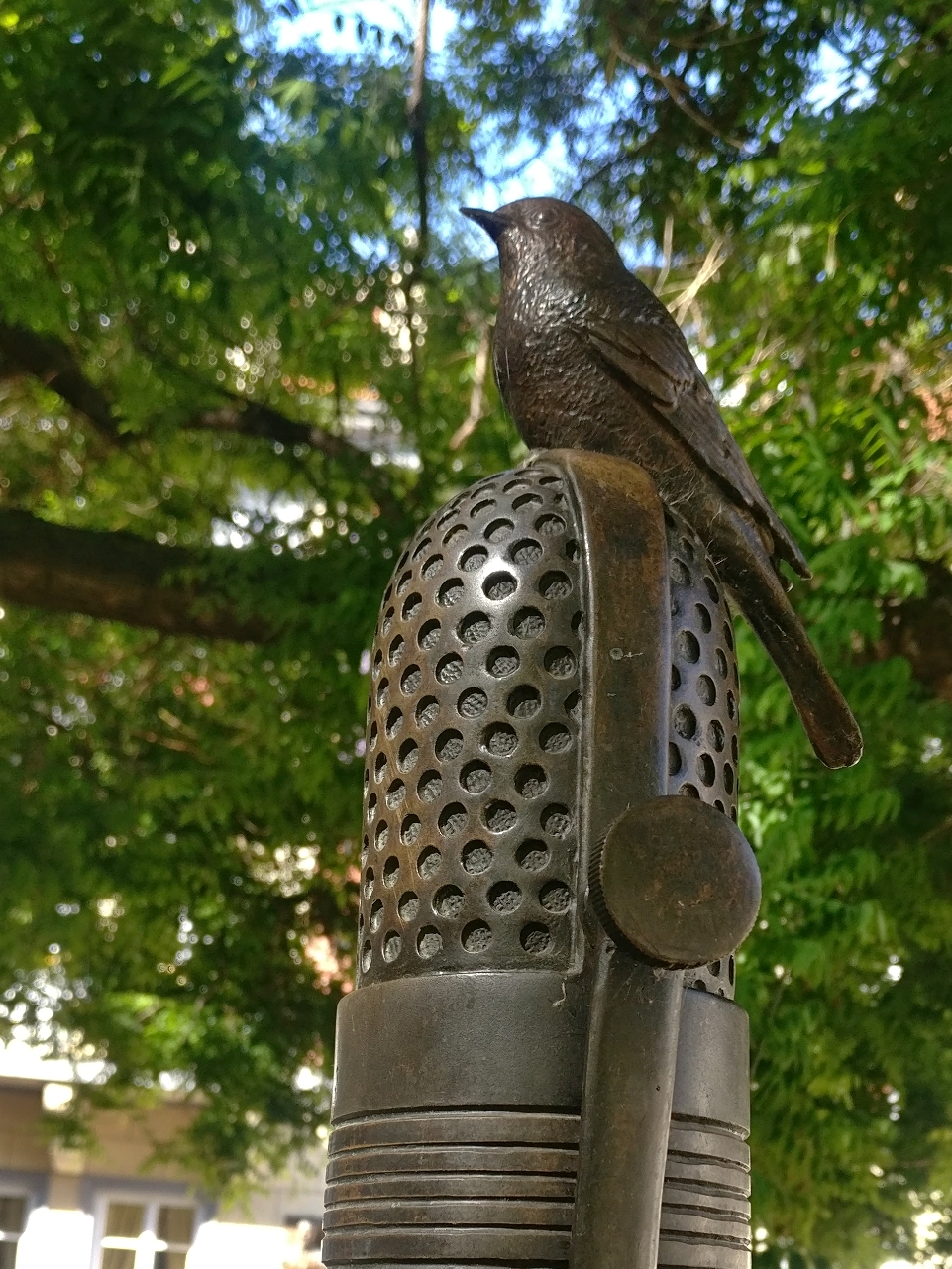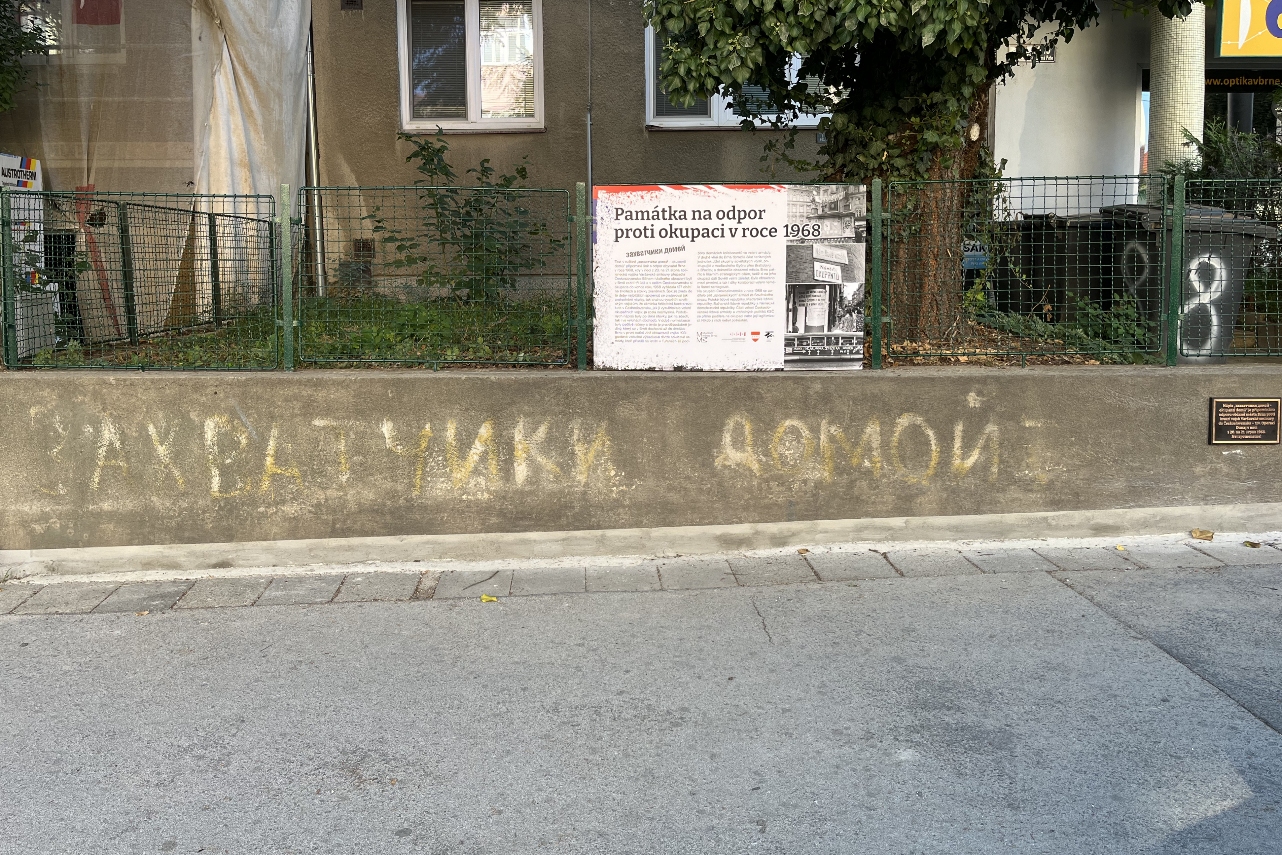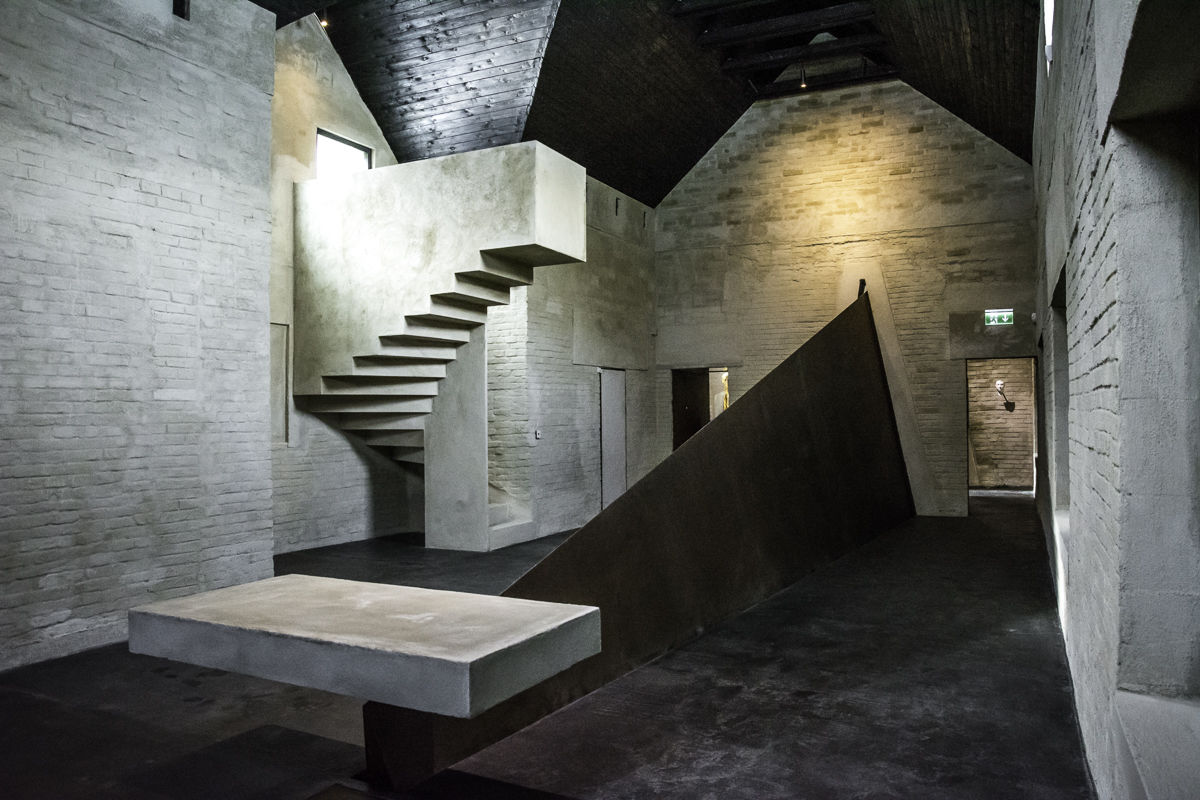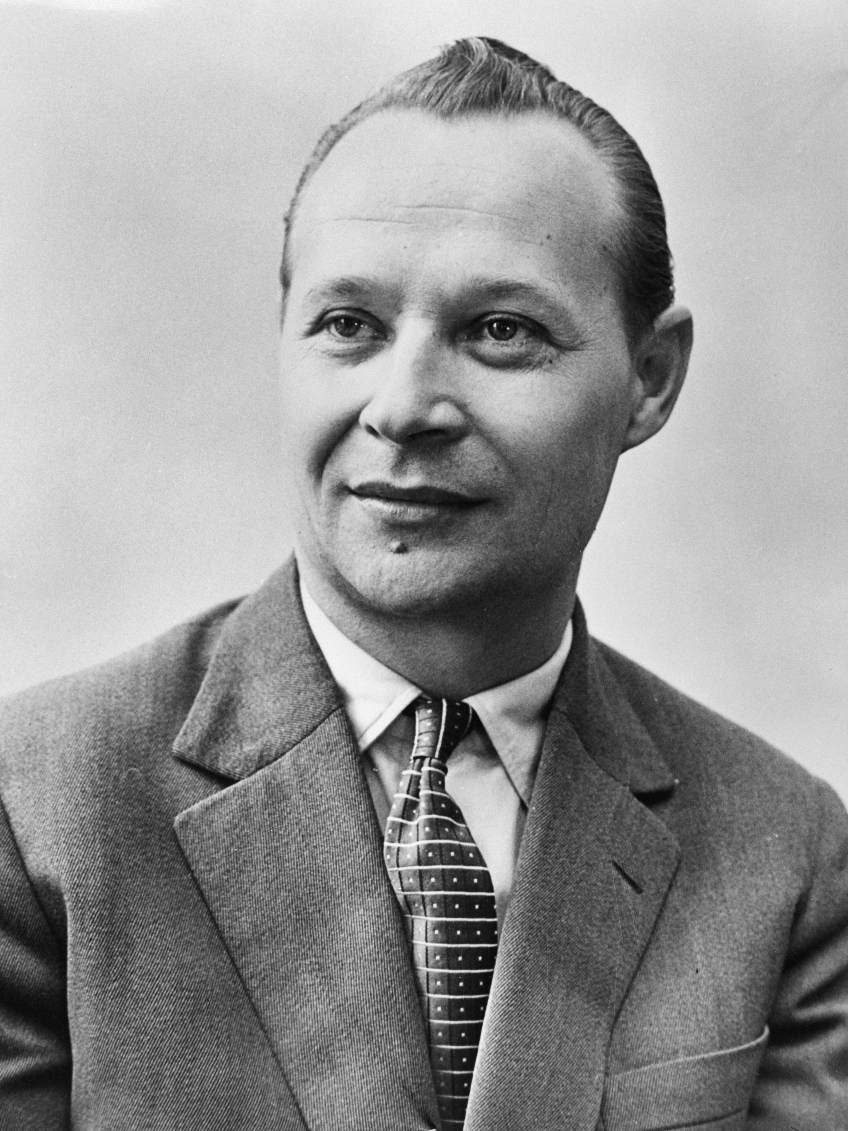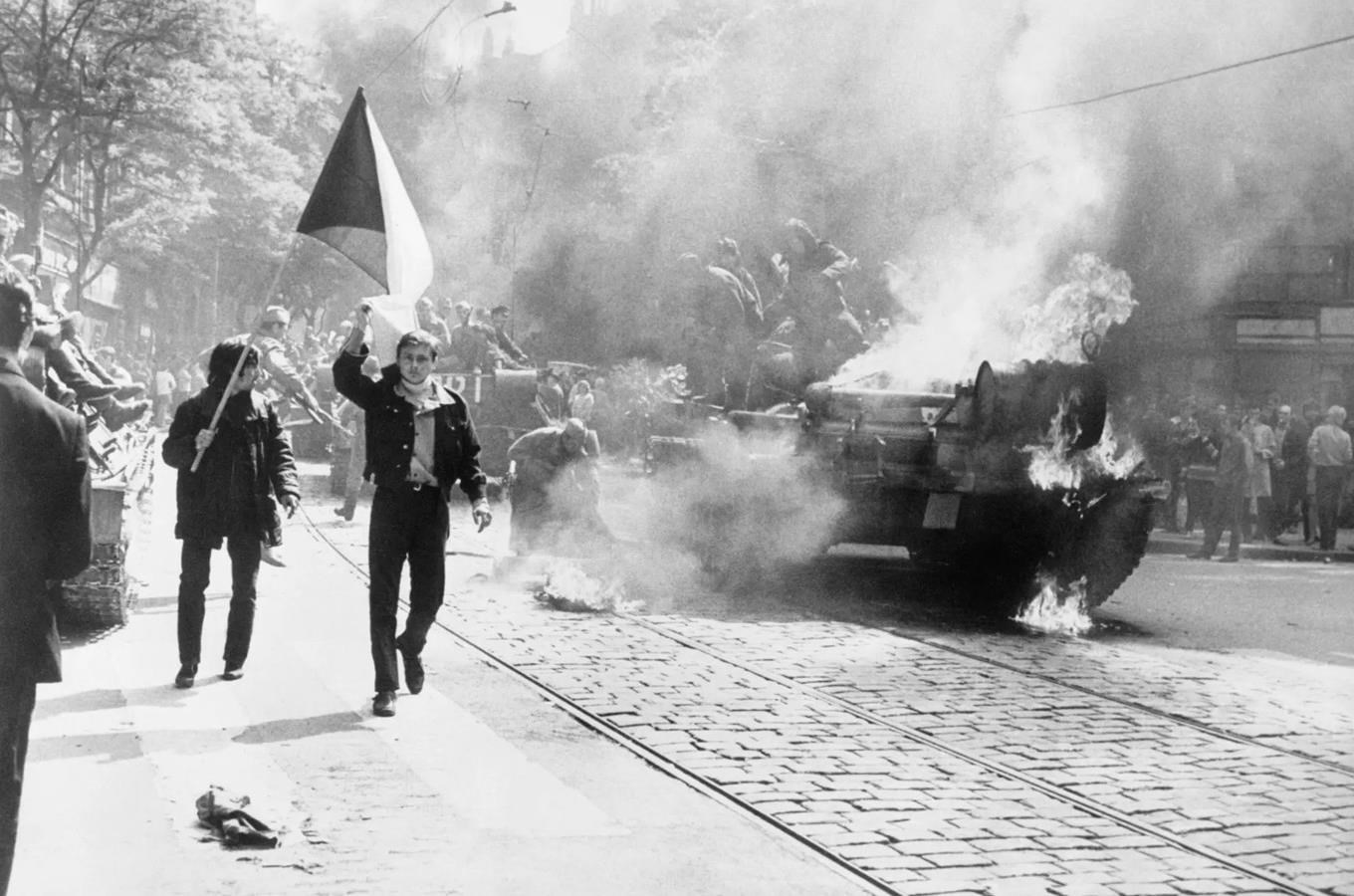
Prague Spring – 1968 – Radio Prague
Czech figure of the „Dreaming about the democracy” topic
On the morning of 21 August 1968, Prague residents fought over the radio building. With the help of picks, they broke through the fuel tanks of the enemy tanks and set the fuel on fire, destroying several tanks. The occupation of Czechoslovakia by Warsaw Pact troops began only a few hours ago. The futile but courageous battle for the most important medium of that time is commemorated by a memorial plaque on the radio building. It is engraved with the slogan from the broadcasts of the time: ‘We are with you, be with us!’ Thanks to the radio, the operation, which the Soviets passed off as fraternal aid against the alleged counter-revolution, was exposed as a clear act of aggression. The occupying Soviet troops remained in Czechoslovakia for twenty years.
The occupation brought an abrupt and violent end to the reformist communists’ efforts to reform the system known as „socialism with a human face.” The slogan was proclaimed by Alexander Dubček, a communist who became a symbol of the efforts of the 1968 Prague Spring. On him, the new First Secretary of the Communist Party of Czechoslovakia, Czech and Slovak society pinned its hopes for the democratisation of the communist bureaucracy, economic reform, and independence on the USSR. There was to be no return to the 1950s, when the builders of socialism and their security apparatus turned against both real and imaginary enemies and organised fabricated political monster trials and judicial murders in the name of the revolution. It was in these hopes for democracy, however, that the USSR, led by Leonid Brezhnev, saw a threat to the entire Eastern bloc, or rather to the stability of the Soviet empire that had emerged in Central Eastern Europe after World War II.
The greater the hopes raised by the „Prague Spring”, the deeper Czech-Slovak society fell into lethargy and indifference of private lives after the return of the old one-party dictatorship, enforced by the weapons of the occupiers. Even the tragic act of the desperate university student Jan Palach, who burned himself to death in Wenceslas Square in protest against the occupation and the spreading social resignation, could not prevent this development. However, small groups of individuals rose up after a few years from the normalization lull to resist the post-totalitarian system of Husák’s socialism.
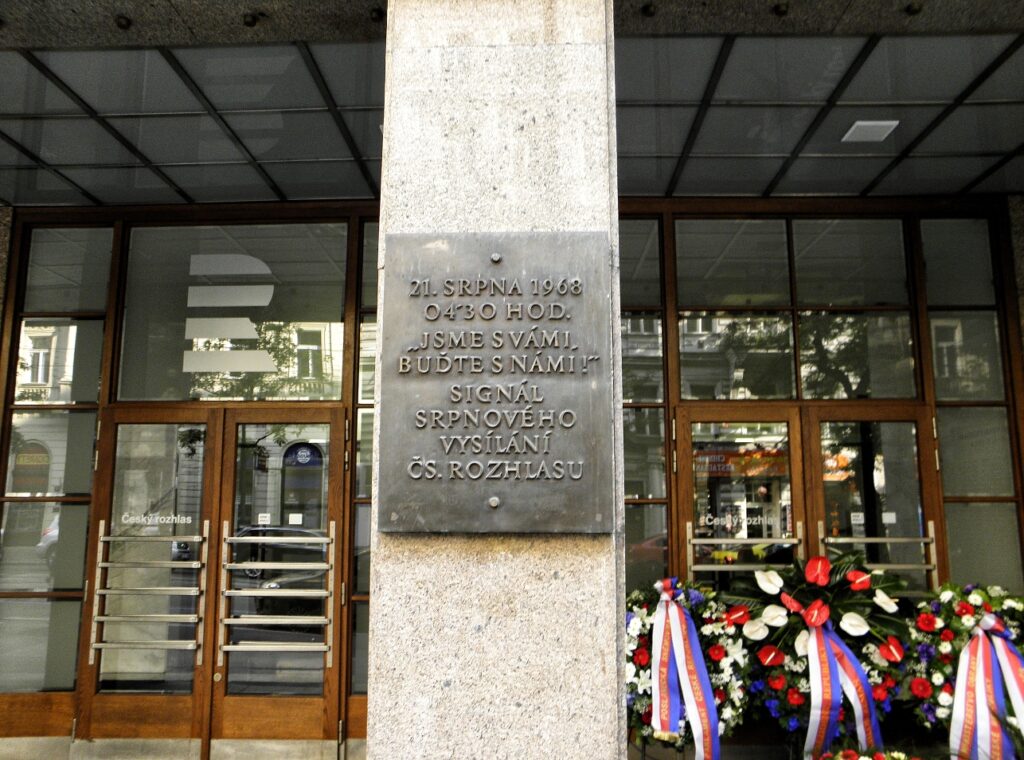
Facts


